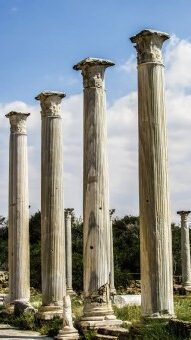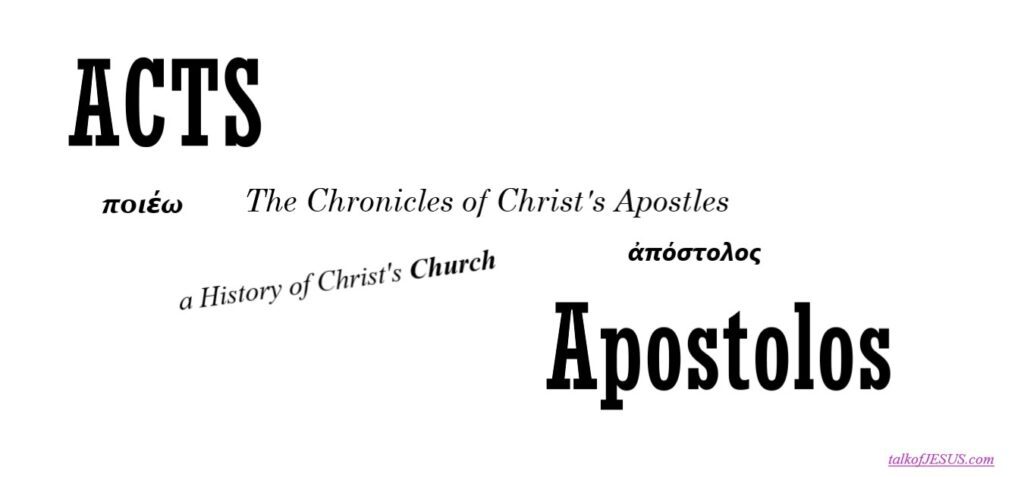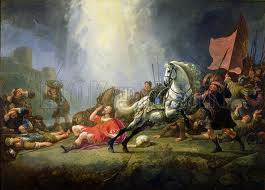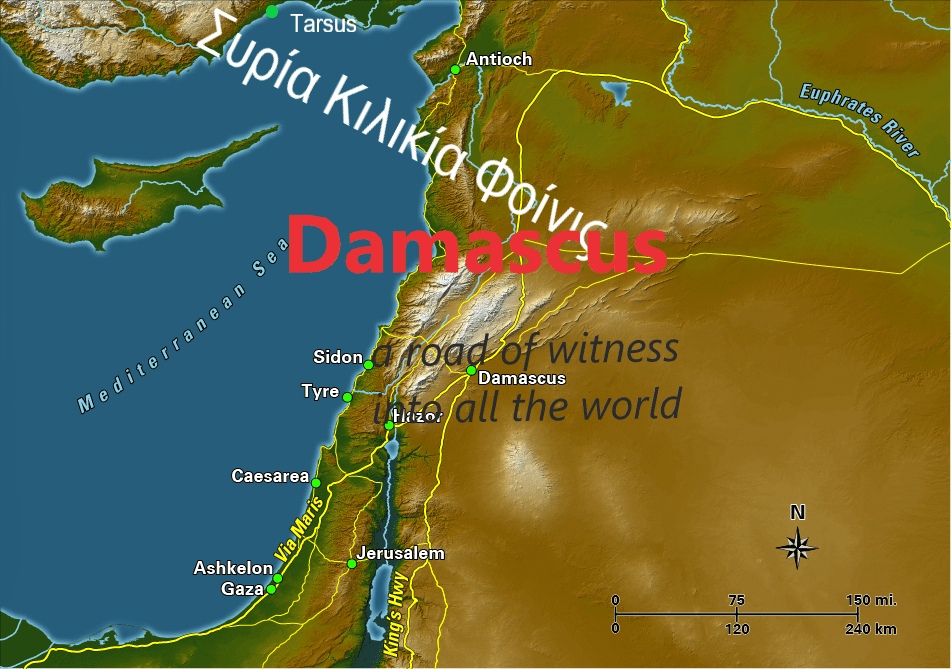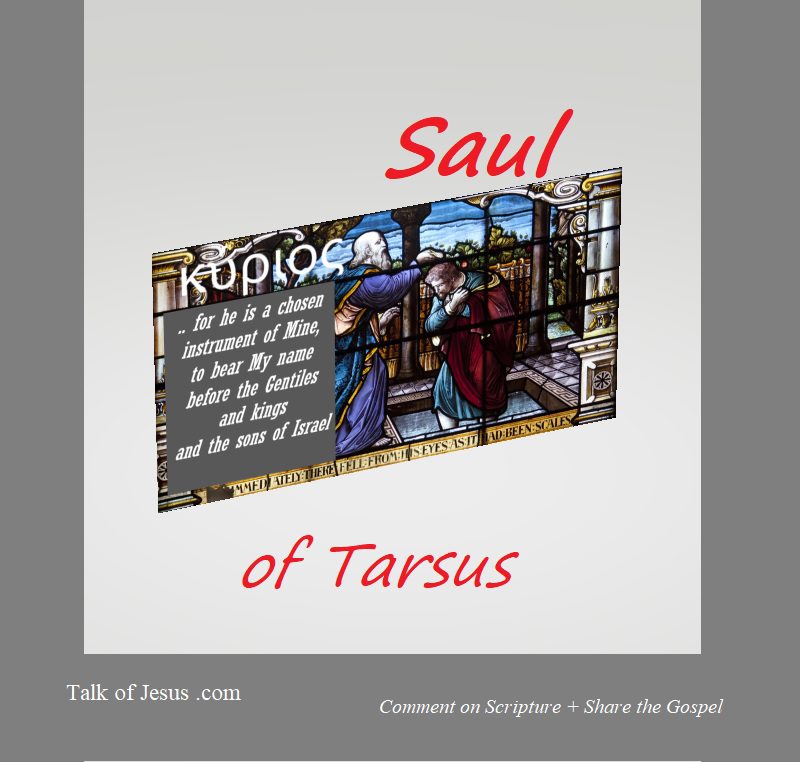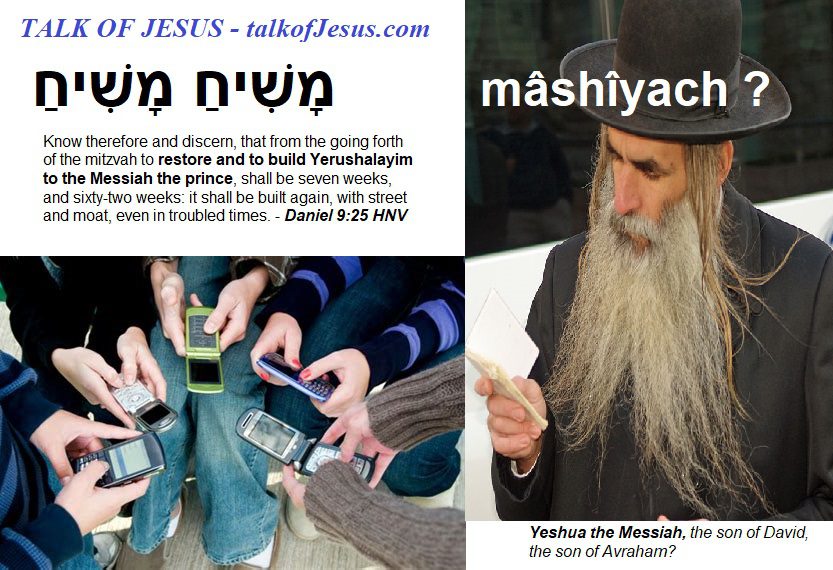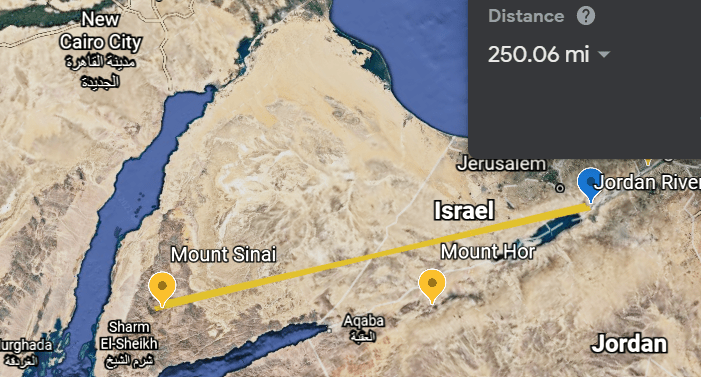So why did Paul leave Athens, Greece? These apostles to the Gentiles are sent to Corinth by the Holy Spirit to plant a church in Achaia.
ACTS of the Apostles 18:
THIS summary of Paul's first two missions INCLUDES a 20 YEAR TIMELINE OF THE EARLY CHURCH.
- After this Paul left Athens and went to Corinth.
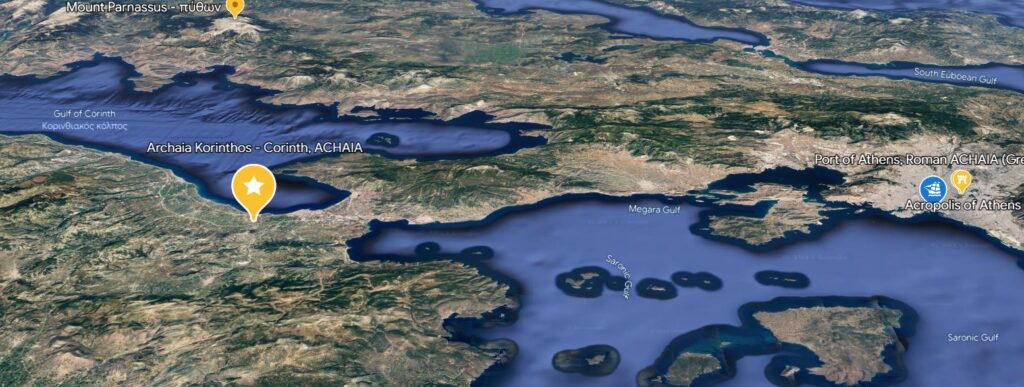
You’ll recall the Apostle’s great proclamation of the Gospel at the Areopagus of Mars Hill in the shadow of a Roman built-back-better ancient Acropolis. (The same philosophers’ debates continue into this distant millennium.)
So Paul went out from their midst.
We will talk about those new disciples who joined Paul's mission in Athens once we arrive in Corinth.
The Mission to Corinth
17:33 So Paul went out from their midst. 34 But some men joined him and believed, among whom also were Dionysius the Areopagite and a woman named Damaris and others with them.
Prior to leaving Athens Dionysius and Damaris AND others join 'them.' TWO new believers plus unnamed 'others.'
Please don’t forget that Jesus, the Twelve Apostles, rabbis, and even those Greek philosophers who invited Paul to address them at the Areopagus in Athens all had followers. Some disciples (or followers) of these men frequently traveled with these teaching mentors to learn more.
Paul and the missionaries of the early church are no exception. The apostle to the gentiles does not preach the Gospel in Athens or anywhere else without the witness of other disciples of Jesus Christ.
ἀποστέλλω
Lexicon :: Strong's G649 - apostellō
Paul has disciples of the Way of Jesus Christ with him — other apostles SENT by the Holy Spirit – and others followers sent to become ministers of Christ’s church in all the world.
Gospel of Luke 10:
Now after this the Lord appointed seventy others, and sent G649 them in G649 pairs ahead of Him to every city and place where He Himself was going to come.
4 “Go! Behold, I send G649 you out G649 as lambs in the midst of wolves.
What kind of MAN would send out 70 missionaries with the Gospel into the midst of wolves?
JESUS!
“The one who listens to you listens to Me, and the one who rejects you rejects Me. And he who rejects Me rejects the One who sent G649 Me.”
Gospel of Luke 10:16 LSB – the Word of Jesus by the Authority of God the Father to seventy disciples
Paul will later write to his disciple Timothy, whom he has already circumcised to keep the young man from the wolves seeking their lives —
For this I was appointed a preacher and an apostle (I am telling the truth, I am not lying), a teacher of the Gentiles in faith and truth.
1 Timothy 2:7 ESV
Jesus had brought Paul to Himself years ago in Syria, then to Cypress and Galatia previously with Barnabas. Now with Silas and several others the Apostle of the Gentiles journeys through Syria, Galatia, Macedonia, briefly to Greece and here to ACHAIA and its important city of Corinth.
Paul and his company of Christians from Antioch and many other places will build yet another church for the Corinthians and Christ Jesus here in the months to come.
a 20 YEAR Timeline of 2 missions
PAUL, as before, has fled Athens with the young lambs of Christ’s fold not only preserving his own life from the pack of Jewish and Hellenist wolves but done so to continue on the Lord Jesus’ mission before harm might be inflicted on any in his care.
A.D. 30’s –
Jesus crucified and raised from the dead!
The risen Christ instructs the Twelve (now including Mathias) until Pentecost and appears to more than 500 witnesses before the Lord ascends into Heaven. Jesus’ brothers James (who will later lead the Jerusalem church) and Jude now believe and proclaim Jesus as Lord.
The Apostles and others receive the Holy Spirit in Jerusalem and go out to Jews and Samaritans with the Gospel.
After Saul of Tarsus (Paul) had pursued and killed many disciples of the risen Lord, Jesus confronts him near Damascus, later sending Saul into all the world as His vessel with the Gospel. Paul then goes to Arabia.
A.D. 40’s –
Three years after Paul’s conversion and ten years after Jesus’ resurrection Peter, who earlier had miraculously escaped prison in Jerusalem, takes the Gospel to the Gentiles, including Romans.
Then in ~A.D. 44 the Apostle James is murdered and once again Peter is freed from prison in Jerusalem by angels.
The Apostles have begun their journey into all the world, occasionally returning to Jerusalem where Jesus’ half-brother James is now leader of the local church.
~A.D. 47- 49 + Paul’s 1st Mission with Barnabas
Now there were in the church at Antioch prophets and teachers, Barnabas, Simeon who was called Niger, Lucius of Cyrene, Manaen a lifelong friend of Herod the tetrarch, and Saul. While they were worshiping the Lord and fasting, the Holy Spirit said, “Set apart for me Barnabas and Saul for the work to which I have called them.” 3 Then after fasting and praying they laid their hands on them and sent them off.
Acts of the Apostles 13:1-3 ESV – commissioning of Paul and Barnabas for 1st mission
49 And the word of the Lord was spreading throughout the whole region. 50 But the Jews incited the devout women of high standing and the leading men of the city, stirred up persecution against Paul and Barnabas, and drove them out of their district. 51 But they shook off the dust from their feet against them and went to Iconium. 52 And the disciples were filled with joy and with the Holy Spirit.
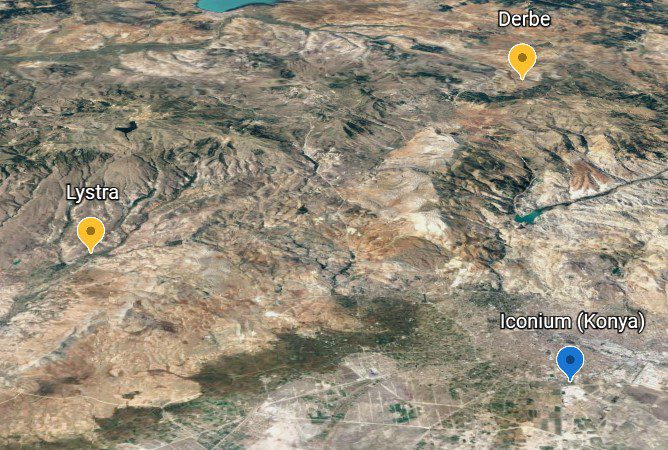
When an attempt was made by both Gentiles and Jews, with their rulers, to mistreat them and to stone them, they learned of it and fled to Lystra and Derbe, cities of Lycaonia, and to the surrounding country, and there they continued to preach the gospel.
Acts of the Apostles 14:5-7 ESV
I reiterate this from Paul’s first mission to emphasize both the persecution by Jews and Gentiles AND the persistence of the Apostles in uplifting these new churches with letters and returning to them on other missions. Barnabas and Mark returned to Cypress. On this mission Paul began by returning to these same churches of his earlier mission in the same regions of Galacia.
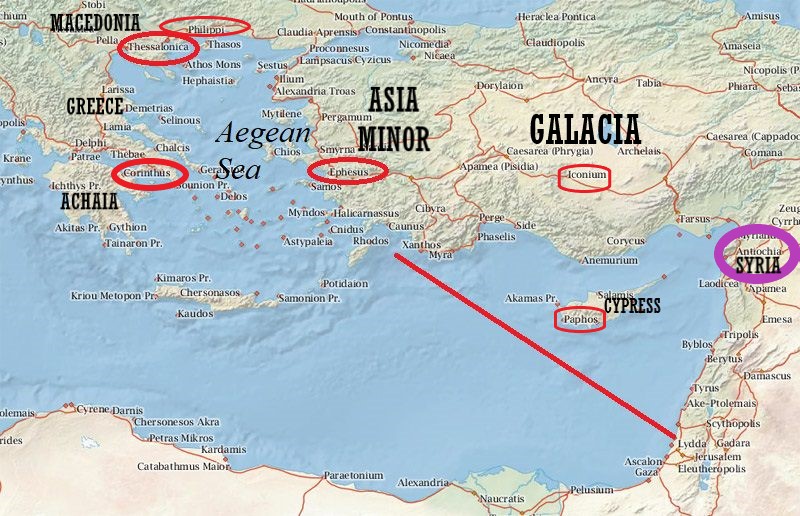
~A.D. 49 – 51 + Paul’s Second Mission with Silas & others
- James, brother of Jesus & leader of the church in Jerusalem writes a letter primarily to the Jews of the dispersion,
Count it all joy, my brothers, when you meet trials of various kinds, for you know that the testing of your faith produces steadfastness. And let steadfastness have its full effect, that you may be perfect and complete, lacking in nothing.
Letter of James 1:2-4 ESV
- Paul writes a letter to the Galatians, saints of the churches he and Barnabas have just planted in the region of Galatia including Iconium, Lystra and Derbe.
I am astonished that you are so quickly deserting him who called you in the grace of Christ and are turning to a different gospel— not that there is another one, but there are some who trouble you and want to distort the gospel of Christ.
from Paul and all the brothers who are with me.. To the churches of Galatia: 1:6-7 ESV
- The Emperor Claudius expelled most Jews (including the sect of Christians) from Rome
- Those expelled from Rome included Priscilla and Anguilla, who the Lord will use in an important new missing in ACHAIA.
Missionaries in Corinth sent out to the STATES of Rome
Again, in A.D. 50 Paul has been sent out with the Gospel to several states of Roman influence – each with its own culture – each with its unique mixture of Hellenists, Italians more connected to Rome’s politics, Jews (some connected to the politics of Jerusalem), just regular residents, travelers, merchants, foreigners and of course, varying numbers of active and retired Roman soldiers.
Acts 18 ESV – Paul in Corinth
NOTE all the other apostles sent to Corinth in ACHAIA with Paul.
After this Paul left Athens and went to Corinth. 2 And he found a Jew named Aquila, a native of Pontus, recently come from Italy with his wife Priscilla, because Claudius had commanded all the Jews to leave Rome. And he went to see them, 3 and because he was of the same trade he stayed with them and worked, for they were tentmakers by trade. 4 And he reasoned in the synagogue every Sabbath, and tried to persuade Jews and Greeks.
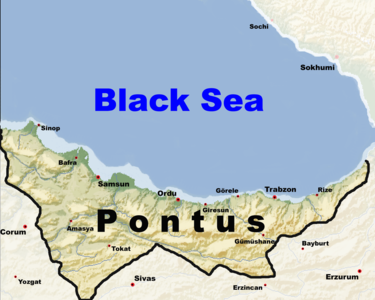
Part of the kingdom was now annexed to the Roman Empire, being united with Bithynia in a double province called Pontus and Bithynia: this part included only the seaboard between Heraclea (today Ereğli) and Amisus (Samsun), the ora Pontica.[18] The larger part of Pontus, however, was included in the province of Galatia.
Source: Wikipedia
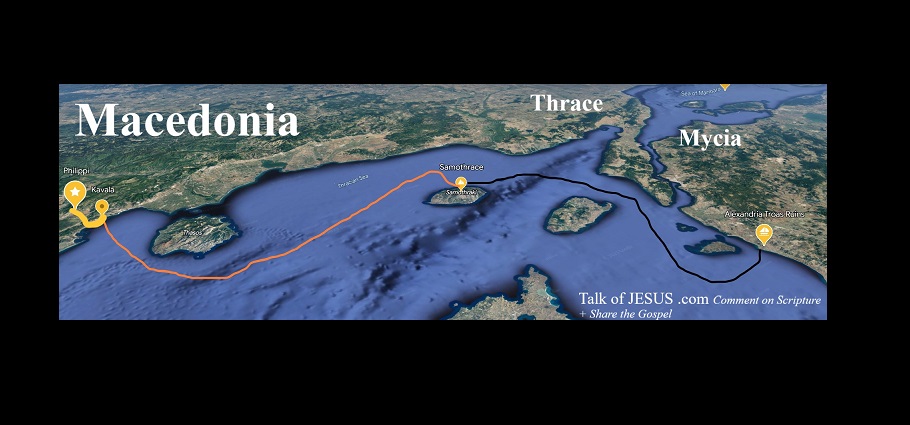
5 When Silas and Timothy arrived from Macedonia, Paul was occupied with the word, testifying to the Jews that the Christ was Jesus. And when they opposed and reviled him, he shook out his garments and said to them,
“Your blood be on your own heads! I am innocent. From now on I will go to the Gentiles.”
Once again, the Apostle sent into all the world has taken the Gospel first to his brothers in the faith of God - the Jews. AND once again as in other cities before many BUT NOT ALL Jews reject Paul and the Good News of the Messiah - the Christ, Jesus.
7 And he left there and went to the house of a man named Titius Justus, a worshiper of God. His house was next door to the synagogue.
(ALSO) 8 Crispus, the ruler of the synagogue, believed in the Lord (Jesus) , together with his entire household.
These two local men of Corinth are important and influential Jews, but they cannot dissuade the outside influences of Jewish zealots who have rejected their own Messiah.
And many of the Corinthians hearing Paul believed and were baptized.
Acts of the Apostles 18:8b ESV
Acts for a 21st c. Church
– a history of the 1st century church –
To Be Continued… in Corinth.
